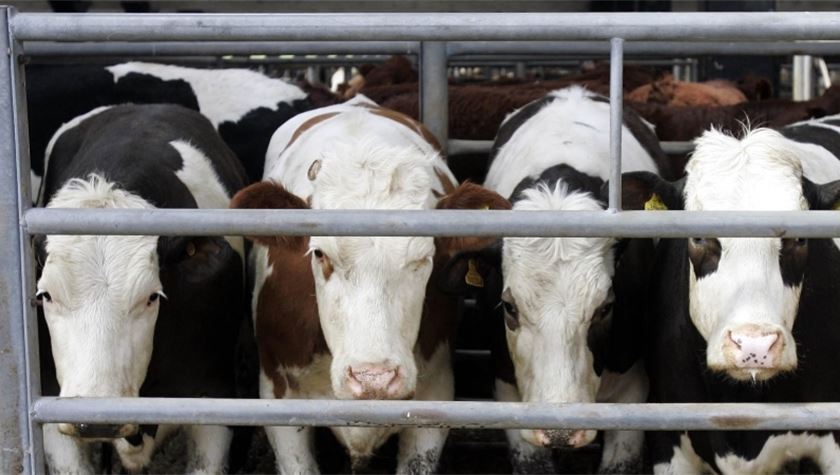Το άρθρο μου στο The parliament magazine
EP’s rapporteur on EU methane emissions strategy argues that time to act for a quick climate win is now
Just over a year ago, European Commission President Ursula von der Leyen and US President Joe Biden announced the Global Methane Pledge. By concluding this global agreement on methane, launched at COP26 in Glasgow on Tuesday, we can look forward to a new era of fast-track greenhouse gas emission reductions.
By reducing methane emissions, we can provide our citizens and SMEs with viable businesses cases for reducing their environmental footprint and contributing to reducing global warming.
More than half of all global methane emissions stem from human activities in three sectors: energy, waste, and agriculture. In this framework, it is important to proceed with an ambitious revision of our environmental legislation.
Agriculture is the sector with the highest potential for overall reductions in methane emissions. There are also potential synergies and trade-offs for mitigating the cost of emission reductions in agriculture, through reducing nutrient losses in animal feed by enteric fermentation and through the production of biogas.
Methane emissions from livestock originate mainly from ruminant species, manure management and rice cultivation. The sources of these emissions are often diffuse in the agriculture sector, which can make measurement, reporting and verification challenging.
They also differ noticeably between Member States. Nevertheless, technologically feasible mitigation practices do exist, and their deployment should be encouraged, along with reporting on their impact.
"By reducing methane emissions, we can provide our citizens and SMEs with viable businesses cases for reducing their environmental footprint and contributing to reducing global warming"
Recent studies have demonstrated that the use of a supplement based on red seaweed, Asparagopsis taxiformis, reduces enteric methane by over 80 percent in beef steers. Garlic as a supplement offers similar benefits and could potentially cut methane emissions from cows by 38 percent.
By the end of 2021, the EU should - in cooperation with relevant experts and EU Member States - develop an inventory of best practices and available technologies to explore and promote the wider uptake of innovative, mitigating actions.
These should have a special focus on methane from enteric fermentation, manure and waste. Here, we want to establish a framework that incentivises and rewards farmers, throughout the entire value chain - and particularly early adopters - for their efforts.
The use of agricultural waste and residues for biogas production can be a driver for the circular economy and the value-added deployment of agricultural residues. Biogas production from agricultural residues and other organic waste can reduce the agricultural sector’s methane emissions and incentivise the so-called ‘prosumer’ (producer and consumer) model.
This is why we should provide coordination and improve the infrastructure between farmers and renewable energy producers, to enable the uptake of locally connected production of sustainable biogas.
The Common Agriculture Policy (CAP) should encourage the mitigation and reduction of methane emissions and to provide the right incentives.
"It is time to act for a quick climate win and to create business opportunities by reducing methane emissions"
The Farm to Fork Strategy calls for CAP National Strategic Plans to provide adequate financial support and incentives for promoting new ecological ‘green’ business models for agriculture and artisanal food production, notably through shorter supply chains and quality food production.
We should put trade in the service of sustainable development, which requires rethinking how we currently import and export foodstuffs all over the world. We also need to critically reflect on big corporate interests, which threaten nutritional security.
Building shorter and cleaner supply chains and promoting healthy and sustainable diets for all, including building-in the right incentives into food prices, are essential.
Meanwhile in the energy sector, over four-fifths of oil and gas consumed in the EU is imported, while most methane emissions associated with oil and gas occur outside the EU’s borders. That’s why we must secure a UN-based pathway on methane in 2021.
A strong, independent, and scientifically rigorous Monitoring, Reporting and Verification (MRV) system is central to addressing methane emissions, to provide credible data, identify issues, assess the progress achieved and determining which measures are effective.
A mandatory MRV system would also improve Member States’ reporting to the UN Framework Convention on Climate Change (UNFCC). A strong Leak Detection and Repair (LDAR) programme is a critical element of the EU’s strategy.
In the waste sector, the EU should continue to tackle unlawful practices and provide technical assistance to Member States to increase implementation of existing legislation. We should also help them stabilise biodegradable waste prior to disposal and increase use for climate-neutral, circular and bio-based materials and chemicals.
In its review of the Landfill Directive in 2024, the EU should consider how to improve landfill gas management, minimising its harmful climate effects and harnessing any potential energy gains. Closure and aftercare procedures of landfill cells are key to reducing leakages through the entire life cycle of landfills.
We must offer specific incentives, suited to each Member State’s conditions, to ensure separate collection of biowaste, including by encouraging public-private sector cooperation.
It is time to act for a quick climate win and to create business opportunities by reducing methane emissions. Let’s do it now!
Read the most recent articles written by Maria Spyraki - A holistic approach for Europe's Methane Strategy
